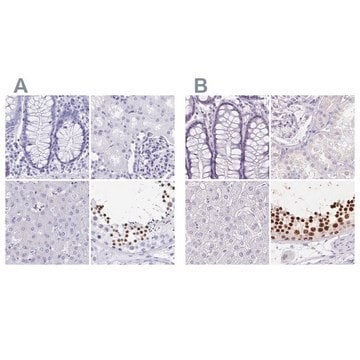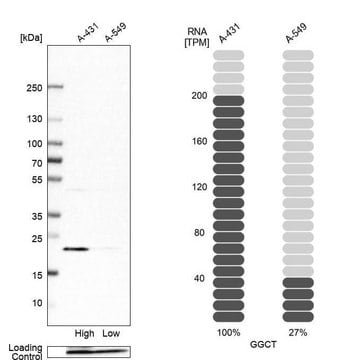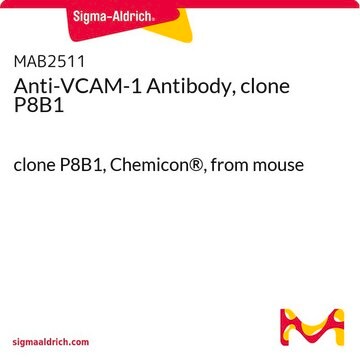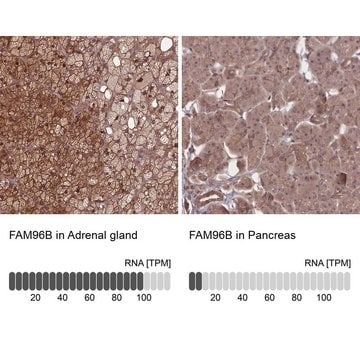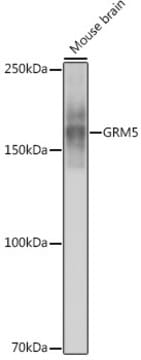HPA025226
Anti-GGH antibody produced in rabbit
Prestige Antibodies® Powered by Atlas Antibodies, affinity isolated antibody, buffered aqueous glycerol solution
Sinónimos:
Anti-Conjugase, Anti-GH, Anti-Gamma-Glu-X carboxypeptidase, Anti-Gamma-glutamyl hydrolase
About This Item
Productos recomendados
biological source
rabbit
conjugate
unconjugated
antibody form
affinity isolated antibody
antibody product type
primary antibodies
clone
polyclonal
product line
Prestige Antibodies® Powered by Atlas Antibodies
form
buffered aqueous glycerol solution
species reactivity
human
technique(s)
immunoblotting: 0.04-0.4 μg/mL
immunohistochemistry: 1:200-1:500
immunogen sequence
FDDGDYFPVWGTCLGFEELSLLISGECLLTATDTVDVAMPLNFTGGQLHSRMFQNFPTELLLSLAVEPLTANFHKWSLSVKNFTMNEKLKK
UniProt accession no.
shipped in
wet ice
storage temp.
−20°C
target post-translational modification
unmodified
Gene Information
human ... GGH(8836)
General description
Immunogen
Application
Anti-GGH antibody produced in rabbit has been used for immunohistochemistry and western blotting.
Immunohistochemistry (1 paper)
Western Blotting (1 paper)
Biochem/physiol Actions
Features and Benefits
Every Prestige Antibody is tested in the following ways:
- IHC tissue array of 44 normal human tissues and 20 of the most common cancer type tissues.
- Protein array of 364 human recombinant protein fragments.
Linkage
Physical form
Legal Information
Disclaimer
Not finding the right product?
Try our Herramienta de selección de productos.
Storage Class
10 - Combustible liquids
wgk_germany
WGK 1
flash_point_f
Not applicable
flash_point_c
Not applicable
Certificados de análisis (COA)
Busque Certificados de análisis (COA) introduciendo el número de lote del producto. Los números de lote se encuentran en la etiqueta del producto después de las palabras «Lot» o «Batch»
¿Ya tiene este producto?
Encuentre la documentación para los productos que ha comprado recientemente en la Biblioteca de documentos.
Nuestro equipo de científicos tiene experiencia en todas las áreas de investigación: Ciencias de la vida, Ciencia de los materiales, Síntesis química, Cromatografía, Analítica y muchas otras.
Póngase en contacto con el Servicio técnico